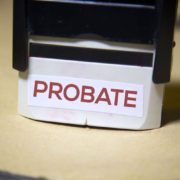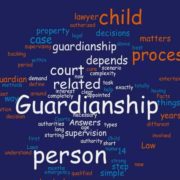How To Use An Ohio Legacy Trust To Protect Family Assets
Baron Law LLC, Cleveland, Ohio, offers information for you to reflect upon while you are setting out looking for an estate planning attorney to help protect as much of your assets as you can. For more comprehensive information contact Baron Law Cleveland to draft your comprehensive estate plan to endeavor to keep more of your assets for your heirs and not hand them over to the government by way of taxes.
If you have a trust more than eight years old, chances are you were not able to take advantage of an Ohio Legacy Trust. In March of 2013, Ohio became the fifteenth state to allow the use of domestic asset protections trusts, also known as Ohio Legacy Trusts. Legacy trusts are extremely useful in high-risk ventures or occupations such as doctors, entrepreneurs, real estate inventors, and venture capitalists. Legacy trusts give unprecedented control to trust makers and far reaching asset protection. Legacy trusts, however, are not the end all be all. Considering legacy trusts are still relatively new on the Ohio scene, no one can say for certain their permanent place in Ohio estate planning. Further, because the advantages with Ohio legacy trusts are so extreme, the legal hurdles and requirements are, correspondingly, stricter. As such, call your local Cleveland estate planning attorney and see if taking advantage of this relatively new estate planning vehicle is right for you and your goals.
I. What is an Ohio Legacy Trust?
Before 2013, in Ohio, the law was that you could not create a trust for yourself, fund it with your own money, name yourself as a beneficiary, and protect assets within the trust from creditors. Now, however, Ohio law allows a settlor to make an irrevocable trust for the purpose of protecting assets from creditors all the while naming themselves a discretionary beneficiary. Further, other beneficiaries, such as a spouse, children and charities, can also be named. If this sounds powerful to you, that’s because it is.
The main wrinkles with Ohio Legacy Trusts is that a third party, such as a bank or CPA, must be appointed trustee and valid creditors have a statutory opportunity to bring valid creditor claims before the asset protection kicks in. The Ohio Legacy Trust Act states that if 18 months have passed since forming the legacy trust, all future creditors, with some exceptions, that are not yet known will be foreclosed from getting trust assets via a lawsuit. Thus, an Ohio Legacy Trust is not an absolute protection against current creditors, but it does protect against almost all future creditors with respect to the assets placed in trust.
II. Why are Ohio Legacy Trusts used?
Aside from the previously mentioned asset protection, Ohio Legacy Trusts also give trust makers an extraordinary amount of control over trust assets and ability to effect trust management. Makers of Ohio Legacy Trusts can be both the creator and beneficiary and reserve for themselves numerous rights regarding the trust. Trust makers can reserve the following rights for themselves:
The right to receive income and principal from the trust in the trustee’s discretion. For example, the legacy trust could provide that all income is distributed to the beneficiary maker on a regular basis or that the beneficiary maker receives a fixed percentage of trust assets.
The right to withdraw up to 5% of the trust principal each year.
The power to veto a distribution from the trust.
Certain rights to control how trust property will pass to other beneficiaries after the trust maker’s death.
The right to remove and replace trustees and other trust advisors.
The right to occupy real estate and use tangible personal property held as part of the trust assets.
The right to distributions to pay taxes on income generated by the trust, or an interest in receiving such tax distributions in the discretion of the trustee.
The right to serve as investment advisor to the trustee.
III. What are the Requirements of an Ohio Legacy Trust?
In a nutshell, an Ohio legacy trust must have the following characteristics:
1) The trustee must reside in Ohio or be an Ohio entity authorized to do business in Ohio.
2) The trust must be irrevocable.
3) The settlor, i.e. trust maker, must draft and execute an affidavit of solvency, sometimes called an affidavit of disposition, swearing the following:
* The assets to be used to fund the trust are not from illegal activity,
* The settlor is the rightful owner of the assets,
* The settlor does not intend to file for bankruptcy,
* The settlor is not a party of any unidentified court or administrative proceedings,
* The settlor will not be rendered insolvent after the contemplated assets are used to fund the trust, and
* The settlor is not transferring assets to the trust with the intent to defraud creditors.
IV. What can an Ohio Legacy Trust not do?
Though the powers of Ohio Legacy Trusts are expansive, they are not without limitation. An Ohio Legacy Trust cannot be used with the intent to defraud creditors. Further, it is a hard rule in Ohio law that these trusts do not protect against child support and alimony support claims. Furthermore, a settlor cannot make themselves insolvent while funding the trust and the trust cannot give a settlor the power to revoke the trust. Also, being that Ohio Legacy Trusts are grantor trusts, the settlor is responsible for paying income tax on all money generated by the trust.
Ohio Legacy Trusts are a great new tool to utilize for the right estate planner, but their use is not without risk. Assets placed in trust are no longer in the settlor’s direct control and it is no guarantee that these trusts will be recognized in other states. The biggest drawback is that Ohio Legacy Trusts only protect against future creditors, not current ones. That said, Ohio Legacy Trusts are an option that should be explored by anyone looking to protect their assets and increase the longevity of such assets. Contact an experienced Cleveland estate planning attorney and find out more about these trusts and how they can work for you.
Helping You And Your Loved Ones Plan For The Future
About the author: Mike E. Benjamin, Esq.
Mike is an attorney at Baron Law LLC who specializes in civil litigation, estate planning, and probate law. He is a member of the Westshore Bar Association, the Ohio State Bar Association, the Cleveland Metropolitan Bar Association, and the Federal Bar Association for the Northern District of Ohio. He can be reached at mike@baronlawcleveland.com.
Disclaimer:
The information contained herein is general in nature, is provided for informational and educational purposes only, and should not be construed as legal or tax advice. The author nor Baron Law LLC cannot and does not guarantee that such information is accurate, complete, or timely. Laws of a particular state or laws that may be applicable in a given situation may impact the applicability, accuracy, or completeness of the preceding information. Further, federal and state laws and regulations are complex and subject to change. Changes in such laws often have material impact on estate planning and tax forecasts. As such, the author and Baron Law LLC make no warranties regarding the herein information or any results arising from its use. Furthermore, the author and Baron Law LLC disclaim any liability arising out of your use of, or any financial position taken in reliance on, such information. As always consult an attorney regarding your specific legal or tax situation.












